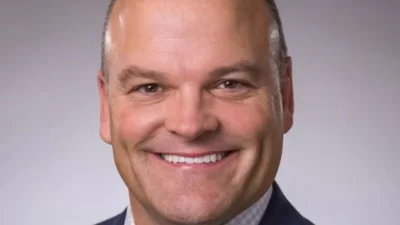Morgan State University issued the following announcement on Oct. 2.
Morgan State University (MSU) has announced its role as one of the lead institutions in a groundbreaking pilot program in engineering education, funded by the National Science Foundation (NSF). “Engineering for US All – E4USA: A National Pilot High School Engineering Course and Database”, a three-year, $4-million program, marks an important milestone in the creation of a standardized, nationally recognized high school engineering course through which pre-college students can earn transferable course credits at the college level. The program also includes professional development for teachers to support the course. Jumoke (“Kemi”) Ladeji-Osias, Ph.D., associate professor of electrical and computer engineering at MSU, is a co-principal investigator for the program. The E4USA team leaders anticipate that five Baltimore area high schools, 15 in Maryland, will participate in the program beginning in the 2019–20 academic year.
“With STEM and related fields leading the pathway toward the jobs of the future, it has become extremely important to fully prepare the next generations of workers and to begin expanding the talent pool before they even step foot on a college campus, and with innovative programs like E4USA we are placed in a better position to meet this need,” said MSU President David Wilson. “I applaud this collaboration made possible by the National Science Foundation and look forward to the knowledge we all will gain from the research it produces.”
The University of Maryland, College Park will lead the pilot in partnership with Arizona State University, Virginia Tech and MSU. Vanderbilt University will evaluate the curriculum, student learning and teacher training, and NASA Goddard Space Flight Center will collaborate on dissemination of program information. Dean Darryll J. Pines of the University of Maryland’s A. James Clark School of Engineering is principal investigator for the program.
Dr. Ladeji-Osias and Morgan’s School of Engineering will be involved in developing the E4USA syllabus and curriculum, developing standard rubrics for teachers to use in evaluating the students’ progress with the program’s hands-on engineering design products and distance-learning technologies, and working with the professional development team to customize the teacher training.
“Morgan’s selection to participate in the E4USA program acknowledges the unique resources and talent that our institution brings to the important task of expanding the nation’s engineering workforce,” said Craig Scott, Ph.D., interim dean of Morgan’s Clarence M. Mitchell Jr. School of Engineering. “Dr. Ladeji-Osias has proven her commitment to academic and research excellence during her long tenure at Morgan, and I am delighted that her work continues to shine a spotlight on our advancement of engineering diversity.”
Through the pilot program, the E4USA investigators want to help “demystify” and “democratize” engineering and determine whether a broader diversity of students will become interested in careers in engineering education or practice. Their research will also explore whether professional development can certify teachers who are highly qualified in engineering and help them train students to tackle and solve problems.
The first year of the pilot will be devoted to developing the first-of-its-kind high school engineering course and the professional development for teachers, Dr. Ladeji-Osias reports, and implementation of the program in the schools will begin in year two. Hundreds of engineering educators will be involved in shaping the curriculum by the conclusion of the pilot. The pilot’s success will hinge on the continued support and feedback from the high school teachers involved. Teachers, who will be grouped as a network to create a broad learning community, will engage in collaboration, learn from one another, and receive support by sharing teaching materials and challenges.
“Morgan’s School of Engineering has a long history of involvement in pre-college engineering, and I am grateful to Dean Pines and the NSF for this opportunity to extend that successful track record,” said Dr. Ladeji-Osias. “My work with E4USA is the culmination of the work I’ve done for Morgan at the pre-college level since 2015, partnering with Baltimore area teachers to enhance their skills in teaching engineering-related topics.”
As a result of the NSF E4USA grant, more than a 1,000 students, at approximately 40 high schools nationwide, are expected to complete the pilot program during its three-year span. An additional 30 schools will participate indirectly with other funding.
Original source can be found here.

Source: Morgan State University


 Alerts Sign-up
Alerts Sign-up